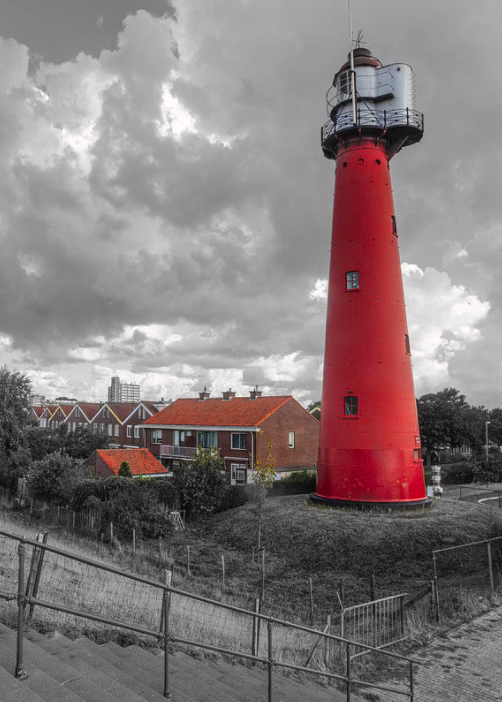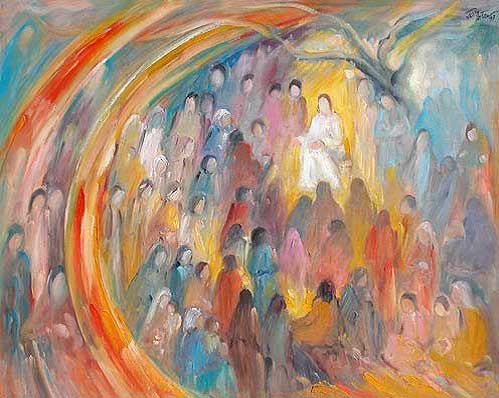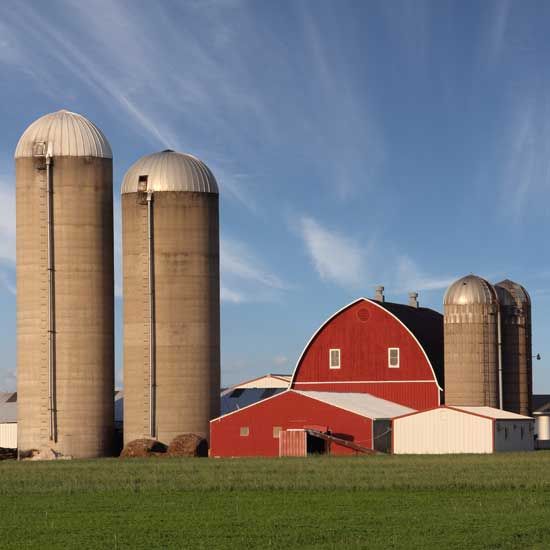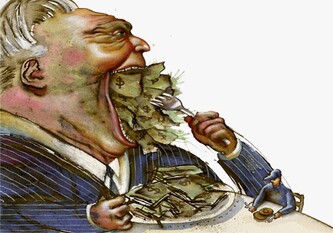|
When our children were young, Kathie would wake them up for school by busting into their bedrooms singing a song about Noah and the Ark. The chorus of the song went like this: Arise and shine and give God the glory, glory Arise and shine and give God the glory, glory ARISE AND SHINE AND GIVE GOD THE GLORY, GLORY Children of the Lord! The kids would usually moan and groan rather than arise and shine. They would pull the covers back over their heads and pretend the scene was a bad recurring dream. Some folks, like my wife Kathie, are morning people. They jump out bed and say: Good morning God! Others, like my children, roll out of bed and say: Good God, its morning! I’m more like my kids. It’s usually after 10:00 o’clock and two cups of coffee before I know God exists. I might be wrong but I think Jesus is a morning person. I have a hunch that long before any of us get out of bed, he’s up and singing—waiting for us to let our lights shine. He knows the world needs the people of God to bring light and hope to the dark places looming in every corner of the globe.
Marianne Williamson, once said, “Light is to darkness what love is to fear; in the presence of one the other disappears." The world is haunted by fear and hate. From racism to road rage, from domestic violence in the hidden corners of homes to mass shooting of innocent people in the Public Square, from abject poverty to corporate greed, we see expressions of darkness based in fear and hate.
I read a quote from Francis of Assisi that gives me a reason to hope. In his simple, yet profound way, he said, “All the darkness in the world cannot extinguish the light of a single candle.” Saint Francis reminds me that one life can make a difference. We can bring light and hope to our corner of the world . . . if we will let our light shine and resist colluding with the darkness.
6 Comments
Do you ever read the words of Jesus and get confused? For instance, his Sermon on the Mount begins with a peculiar description of people he considers blessed. Reading the list might make you scratch your head and wonder, “What is Jesus really saying?”
Blessed are the poor . . . those who mourn . . . the meek . . . the hungry . . . the persecuted. It’s a strange list indeed. Who in their right mind wants to be poor, sad, week, hungry, and picked on? Is Jesus really saying, “be like this and you’ll be blessed,” or is he making it clear that his kingdom includes and values those who are typically unblessed and excluded by the world’s criteria for blessing? I believe the latter. When you read the beatitudes through this lens his sermon becomes “good news to the poor.” Think about that day in Galilee, when Jesus first spoke these words. Who was there on the hillside, listening to him teach?
The people gathered on the hillside were the poor. They were the hungry. Collectively, those setting with Jesus had spent a lifetime mourning, grieving and longing to be included in a beloved community. Jesus sits with them, celebrates their beauty and includes them in his circle of friendship—a circle he calls the kingdom of heaven. In his book, Divine Conspiracy, Dallas Willard paraphrases the beatitudes by saying, Blessed are the spiritual zeros—the spiritually bankrupt, deprived and deficient, the spiritual beggars, those without a wisp of religion—when the kingdom of heaven comes upon them. Unfortunately, spiritual zeros are typically not celebrated in the life of the Church; instead, we celebrate those who add “value and leadership” to the programs we offer. All to often, the church’s definition of blessing mirrors the ways of the world, more than the ways of Jesus. We fall for the lie and believe “the blessed” are the wealthy and powerful, the attractive and thin, the youthful and talented. When we chase after the world’s values—seeking a blessed life—we run the risk of missing the blessing that is being offered through the hands of Jesus. Perhaps that’s why Jesus follows the beatitudes in the Gospel of Luke with a list of woes: Woe to you who are rich . . . Woe to you who are well fed . . . Woe to you who laugh . . . Woe to you when everyone speaks well of you. The tension between the beatitudes and the woes is resolved in my mind by a quote from St. Augustine: God is always trying to give good things to us, but our hands are too full to receive them.
Are we blessed yet? It’s a question Ash Barker asks in his book, Make Poverty Personal: Taking the Poor as Seriously as the Bible Does. After raising the question, Barker reminds his reader “the point of our faith is not to have bigger and better lives or churches, but to transform the world.” Last week I wrote an article about getting “A Bigger Life” and then I read Barker’s book. He made me pause and think. I still believe we need bigger lives to receive all God wants to give us. What we don’t need is bigger barns! Jesus once told a parable about a rich man who’s farm produced such an abundant harvest he found himself up to his elbows in grain. Instead of sharing the grain with hungry people he decided to tear down his small barns and build bigger ones to store his surplus. His plan was to “take life easy; eat, drink and be merry.” (Luke 12:13–21) The story doesn’t end well for the guy with the big barns. God calls him a “fool” and says, “This very night your life will be demanded from you. Then who will get what you have prepared for yourself?” Jesus sums up the story by saying, “This is how it will be with whoever stores up things for themselves but is not rich toward God.” The difference between a need for bigger lives and bigger barns is tied up in our definition of the word, “blessing.” What does the Bible mean when it says we are, “blessed to be a blessing?” What does it look like to be “rich toward God?” Far too often, we Christian’s define “blessing” in terms of material wealth, vocational success, position and power. We fail to hear the words of Jesus clearly; instead we interpret his words through our upwardly–mobile, consumer–driven filters.
Obviously, the promise of “being blessed” by Jesus and “being rich toward God” must mean something greater than material wealth. That’s why we need bigger lives and bigger hearts to receive the blessing. Jesus speaks of a spiritual blessing that brings deeper meaning and significance to our lives. God’s self-giving Spirit—poured into our lives—is a blessing that will open our hearts to a radical generosity that looks like Jesus. Filled with the Spirit of Christ, we have the potential to be a resource of blessing to others. Art Barker says, “God’s blessing today is not found in leather wallets, but among the cries of multitudes facing poverty. For there we find Jesus’s presence longing to intervene through his body, the church.”
It’s time to tear down our big barns and build bigger lives. Are you an optimist or a pessimist? Read these four quotes before you answer the question:
When you consider your spiritual life, is your cup half full or half empty?
Jesus doesn’t want us to settle for a half full or a half empty life. Nor does he want us to dumb down our lives, or our theology, in order for our half–hearted, lack luster experience of the Holy Spirit to appear full. On the contrary, Jesus wants to give us the Holy Spirit without limit, (John 3:34.) His promise is not to give us a sprinkle of the Spirit; instead, he says if we embrace radical generosity as a way of life, a good measure, pressed down, shaken together and running over, will be poured into our lap, (Luke 6:38.) Jesus said his intention is to give us abundant life; (John 10:10) a life filled with meaning, purpose, and power; or as St. Peter defines it--a life filled with an inexpressible and glorious joy, (I Peter 1:8.) Is that your life experience? Does your faith in Christ fill you with an inexpressible and glorious joy? Do you face the challenges of each day and the routine of life knowing that the power that raised Jesus from the dead lives in you? (Romans 8:11) If not these four words from scripture may be a timely encouragement. LIVE BY THE SPIRIT (Romans 8:1-17) In this passage St. Paul distinguishes between a life lived in the flesh and one that is lived in the Spirit. There is a choice we can make each day. We can live by the flesh and let self will govern our lives and our minds; we can live under a religious spirit, believing we must appease God by being good and following the law; or we can choose to live in the freedom of the Spirit, believing there is indeed a Spirit realm and allow our lives and our minds to be governed by the Holy Spirit. DON’T GREIVE THE SPIRIT (Ephesians 4:29-32) In this passage St. Paul makes it clear that it matters how we treat one another. How we talk to and how we talk about one another makes a difference in the way the Holy Spirit interacts with and through our spirits. If you want to experience more of the Holy Spirit in your life start honoring the person right in front of you. Love your neighbor! Love your enemy! Use your words to encourage and lift up other people.
REPENT AND BELIEVE THE GOOD NEWS (Mark 1:15) In the Gospel of Mark, Jesus announces that the kingdom of heaven has invaded earth, “The time has come; the kingdom of God has come near. Repent and believe the good news!” (Mark 1:15) I used to think repenting meant confessing sin and getting ready to die; now I know God wants me to change my mind and agree with God’s desire to invade my life with heaven today. |
AuthorLarry Stoess is an author, public speaker, and urban church planter. He loves telling stories about how dreaming with God will empower people to make old and broken things new again. Larry and a band of friends founded the Church of the Promise in Louisville's Portland neighborhood; The Table, a pay-what-you-can community café; and Promise Housing Plus, a non-profit construction company. He has written about their experience of dreaming with God in his new book: Think Red. Archives
August 2023
Categories |
|
Contact Us |












 RSS Feed
RSS Feed